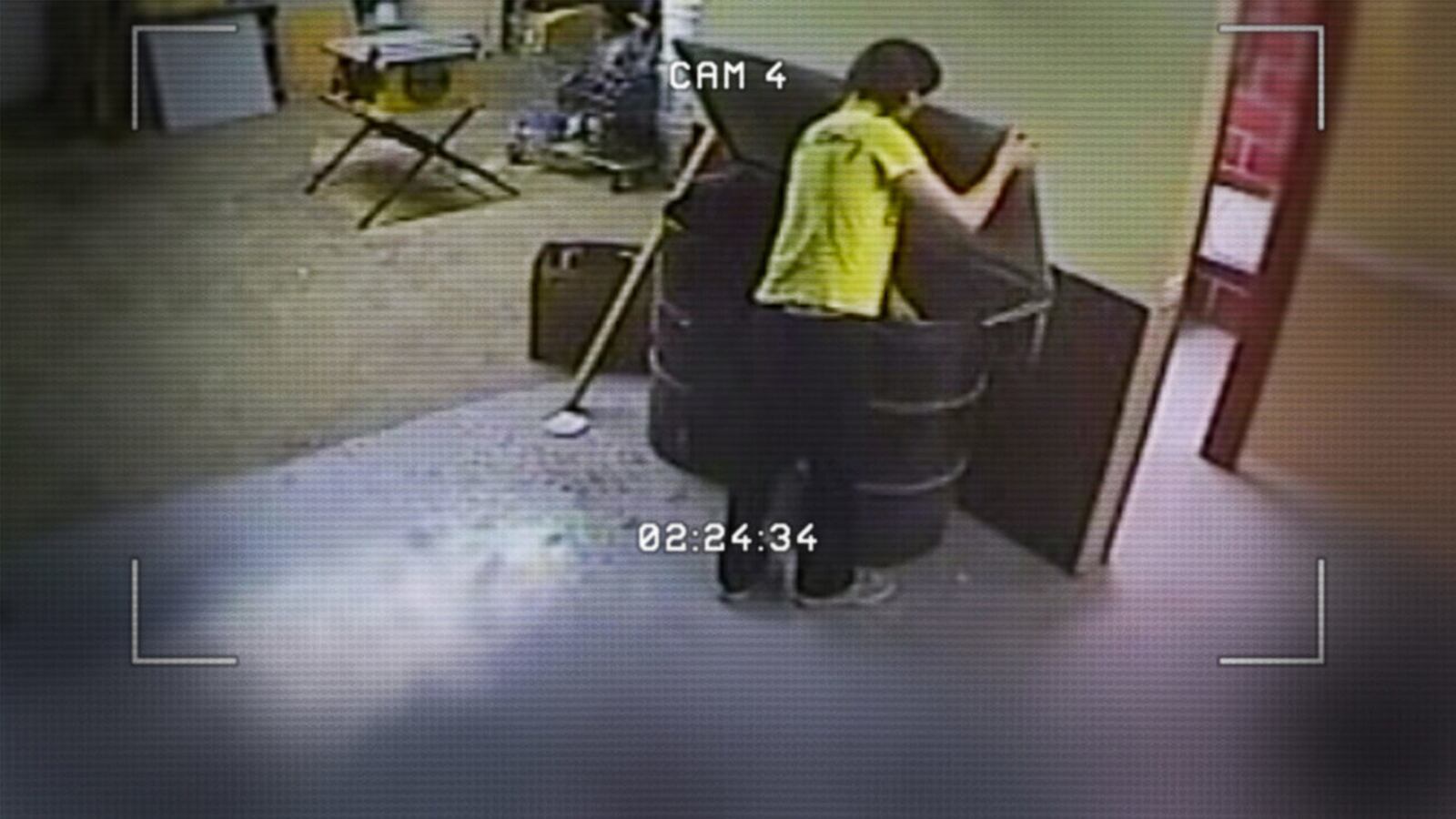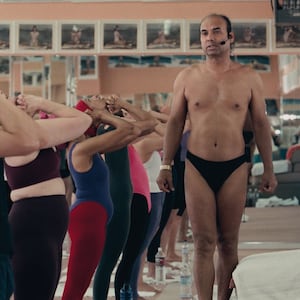The internet offers people endless ways to mask, modify and change their identity, even as actual digital privacy proves elusive, if not outright unattainable. That paradox is at the heart of Don’t F**k With Cats: Hunting an Internet Killer, writer/director Mark Lewis’ shocking, haunting and altogether absorbing three-part documentary about a man who shared homemade snuff films—of animals, and then a human—on the web, and the online sleuths who made it their mission to bring him to justice.
Even in an increasingly crowded true-crime field, Netflix’s latest (available now) is a stunner, especially for those not familiar with its subject.
Its story begins with Deanna Thompson, a Las Vegas casino data analyst obsessed with the internet (she went by the alias Baudi Moovan, fashioned after the Beastie Boys song) who in 2010 was directed by fellow Facebook users to a video titled “1 boy 2 kittens.” In it, a young man in a hoodie murders two tiny cats by putting them in a vacuum-sealed bag. Having never seen it in full before sitting for Lewis’ cameras (we, thankfully, are spared the most gruesome bits), Deanna breaks down in tears witnessing this atrocity, which soon begat an online outcry and the creation of a group (“Find the Kitten Vacuumer…for Great Justice”) dedicated to tracking down the perpetrator.
“1 boy 2 kittens” violated what Deanna dubs the internet’s “Rule Zero”—namely, don’t fuck with cats—and the Facebook group put her in touch with John Green, a Los Angeles member similarly outraged by the clip. The two immediately began hunting for clues that might identify the creator of the video, and the fact that the uploader’s user profile had also “liked” a Catch Me If You Can trailer suggested the animal killer was looking for a cat-and-mouse game (no pun intended). Deanna and John were happy to oblige, using their shrewd analysis of the video, and the power of the internet, to dig up info on his whereabouts. A second post only further escalated matters, replete with attention being mistakenly drawn to a Namibia-based suspect who—following a storm of online harassment—took his own life.
Just when things seemed to hit a wall, group members received a message from a fake sockpuppet account claiming the culprit they sought was Luka Magnotta. An initial Google search brought back hundreds upon hundreds of hits, since Luka was a twentysomething aspiring actor/model who had made myriad photomontages of himself jet-setting around the world. He was also the focus of countless fan sites—all of them seemingly created, and commented on, by Luka himself. Deanna and John set about painstakingly scrutinizing every facet of Luka’s online presence, which also included a 2007 interview with a Canadian newspaper in which he said he was being ruined by rumors about his romantic involvement with serial killer Karla Homolka.
Using Google Maps and GPS data embedded in a photo, Deanna and John pinpointed the location of Luka’s Toronto apartment complex. After cops failed to find Luka there, another video arrived—this time of the same monster feeding a kitten to a python while wearing a Santa hat (which resembled a cap worn in a related account’s profile pic). It was now clear that the fiend was relishing toying with Deanna and John. Worse, breadcrumbs left by the individual implied that he had a fondness for real and fictional serial killers—and that he intended to take a human life next.
That Luka did, luring Chinese engineering student Lin Jun to his Montreal apartment, stabbing him repeatedly on camera, and then uploading the video to the internet for all his pursuers to see. Throughout, he made no effort to hide from CCTV cameras; in fact he figuratively flipped off those who would eventually watch the footage by, for example, wearing Lin Jun’s yellow shirt in the aftermath of the slaying—as well as by making sure his video ended with a shot that irrefutably identified his victim. More diabolical still, he left Lin Jun’s dismembered body where it would be found (along with various other damning pieces of evidence), and sent the dead man’s hand and foot to, respectively, Montreal’s liberal and conservative party headquarters. National notoriety was his aim, and with this heinous crime, he finally had everyone’s attention, leading to voracious news coverage and a manhunt on both Canadian and, later, French soil.
Don't F**k With Cats hums with suspenseful urgency, its non-fiction frame drenched in close-ups of social media posts that impart a sense of the digital world’s consuming grip on personal and national consciousnesses. Writer/director Lewis understands that his story is not only a breakneck real-life thriller but also a portrait of the internet’s ubiquitous role in our daily lives. Though it opts not to elaborate on Deanna’s closing suggestion that she and John—and, by extension, all of us viewers—are complicit in stoking lunatics’ lethally narcissistic impulses, the documentary does elucidate how the online realm allows us to live out our darkest fantasies, and shape and define ourselves, including as armchair Sherlock Holmeses. The tale that emerges is akin to a modern variation of the Zodiac case, with Facebook and YouTube the means by which a maniac taunts official and amateur investigators—except that in this instance, the vehicle for the villain’s notoriety turns out to also be the agent of his undoing.
If that makes Don’t F**k With Cats sound like a Hollywood thriller, that’s not accidental. The further it plunges down this virtual rabbit hole, the more Lewis’ series proves that Luka’s true hunger wasn’t for blood but, rather, for fame—and of a distinctly cinematic sort. Just as he was often photographed to look like Humphrey Bogart and Marlene Dietrich, so too did his murderous behavior deliberately echo elements of Zodiac, Seven, American Psycho and, most jaw-dropping of all, Basic Instinct. It’s a saga about life imitating art in ways that are so insane—replete with Luka spending a year and a half establishing an alibi rooted in a movie fiction—it’s amazing its own story isn’t make-believe.


